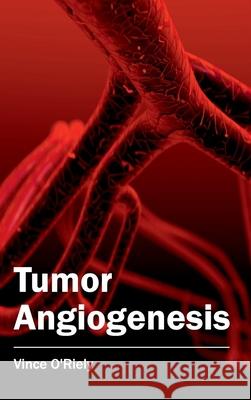Tumor Angiogenesis » książka
Tumor Angiogenesis
ISBN-13: 9781632413765 / Angielski / Twarda / 2015 / 310 str.
Extensive information regarding the topic of tumor angiogenesis has been compiled in this advanced book. Tumor angiogenesis is the procedure primarily responsible for the generation of new blood vessels that boost tumor development and metastasis. The process is directed by potential pro-angiogenic factors that are prevalent in the tumor environment and are generated by malignant cells as well as the host cells recruited to the tumor site. Tumor environment is distinguished by the imbalance between anti-angiogenic and pro-angiogenic agents, which directs the formation of several, albeit structurally damaged, vessels. These inadequately perfused and abnormal vessels considerably contribute to the tumor pathology not just by assisting the expansion of the tumor mass but also by boosting chronic inflammation, impeding drug delivery, developing thrombosis, and disseminating tumor cells. These problems regarding tumor vasculature continue to garner significant attention of clinicians and scientists interested in developing the comprehension of tumor biology and formulation of novel drugs. This book consists of a number of reviews covering a wide spectrum of recent topics regarding the pathology of tumor blood vessels which includes mechanisms inducing novel vessels, potential clinical use of latest anti-angiogenic therapies, and recognition of new targets for inhibition of tumor angiogenesis. The book aims to serve as a useful resource of reference for oncologists, biologists and cancer researchers who are interested in vascular and endothelial cell behavior in the context of cancer.
Extensive information regarding the topic of tumor angiogenesis has been compiled in this advanced book. Tumor angiogenesis is the procedure primarily responsible for the generation of new blood vessels that boost tumor development and metastasis. The process is directed by potential pro-angiogenic factors that are prevalent in the tumor environment and are generated by malignant cells as well as the host cells recruited to the tumor site. Tumor environment is distinguished by the imbalance between anti-angiogenic and pro-angiogenic agents, which directs the formation of several, albeit structurally damaged, vessels. These inadequately perfused and abnormal vessels considerably contribute to the tumor pathology not just by assisting the expansion of the tumor mass but also by boosting chronic inflammation, impeding drug delivery, developing thrombosis, and disseminating tumor cells. These problems regarding tumor vasculature continue to garner significant attention of clinicians and scientists interested in developing the comprehension of tumor biology and formulation of novel drugs. This book consists of a number of reviews covering a wide spectrum of recent topics regarding the pathology of tumor blood vessels which includes mechanisms inducing novel vessels, potential clinical use of latest anti-angiogenic therapies, and recognition of new targets for inhibition of tumor angiogenesis. The book aims to serve as a useful resource of reference for oncologists, biologists and cancer researchers who are interested in vascular and endothelial cell behavior in the context of cancer.












